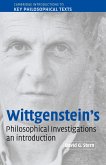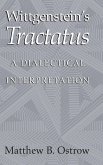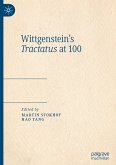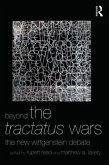Ludwig Wittgenstein's 'Tractatus Logico-Philosophicus' is one of the most important books of the twentieth century. It influenced philosophers and artists alike and it continues to fascinate readers today. It offers rigorous arguments but clothes them in enigmatic pronouncements. Wittgenstein himself said that his book is 'strictly philosophical and simultaneously literary, and yet there is no blathering in it'. This introduction, first published in 2005, considers both the philosophical and the literary aspects of the 'Tractatus' and shows how they are related. It also shows how the work fits into Wittgenstein's philosophical development and the tradition of analytic philosophy, arguing strongly for the vigour and significance of that tradition.
Hinweis: Dieser Artikel kann nur an eine deutsche Lieferadresse ausgeliefert werden.
Hinweis: Dieser Artikel kann nur an eine deutsche Lieferadresse ausgeliefert werden.
'This is an extraordinarily interesting, and in fact gripping, book on a famously enigmatic text. Nordmann's mastery of the philosophical backgrounds, extending back through both Anglophone and European philosophy, along with his deep knowledge of the Austrian culture behind the early Wittgenstein, puts him in a position to shed rare light on Wittgenstein's seemingly gnomic utterances. Put this all together and you have a striking elucidation of Wittgenstein on the limits of sense that richly rewards close reading.' Garry Hagberg, James H. Ottaway Professor of Philosophy and Aesthetics & Editor of 'Philosophy and Literature', Bard College, New York









